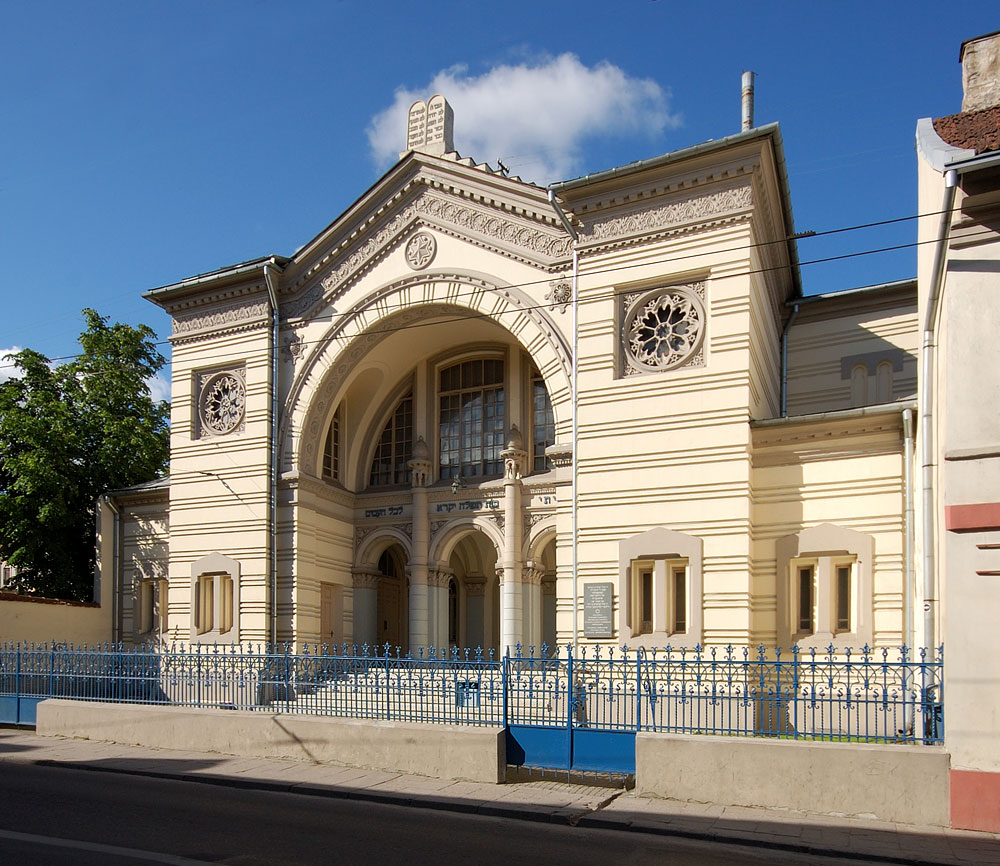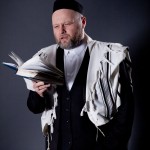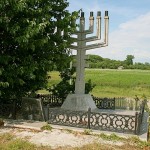The Synagogue‘s Cantor Shmuel: What Jews Need in the Diaspora, Is Unity
Even though Shmuel Yatom, the cantor of the Vilnius Choral Synagogue and a Hebrew teacher, wasn‘t born in Vilnius, he has a special connection with this town. Shmuel says that he comes from a family with a long-lasting cantorial tradition, which was transferred from generation to generation. His grandfather, who was brutally murdered by the Nazis during the Second World War, was the last rabbi and cantor of Annopol, Ukraine. Before the war, he was often invited to Vilnius on High Holidays. “Maybe my grandfather, may G-d avenge his blood, was singing in the same synagogue as I am today. To me, this is a living memory and a continuation of our family traditions, and that obliges. I do not see myself as a separate individual who performs cantor‘s duties. However, I can‘t even compare myself with my grandfather. My father, blessed memory, used to tell me that when my grandfather was singing, the windows of the synagogue were shaking – such powerful was his voice. And yet, the fact that I continue his traditions is very important to me“, claims Shmuel.
He points out that just like there were two big schools of the Torah Study, study in ancient Israel – Hillel and Shamai – which had a different approach to the Torah Study, in modern times one such school was established in Vilnius, or Vilna, and one in Mezeric. “When Jews wanted to study Torah, they would have to choose one of the two paths. One of the paths led to Vilnius, and the other one – to Mezeric. I, as a cantor, try to preserve the tradition of Jewish Vilnius, and especially of the Gaon of Vilna, and follow this tradition. On the other hand, I don’t want to set these two schools against one another, since the differences between them are not the essential ones. What we, Jews, need in the Diaspora, is to be united“, thinks Shmuel.
He claims that he never expects any compliments or comments regarding his work. “A cantor is not an opera singer (most of prewar cantors even didn‘t know musical notes), but a praying Jew. However, one occasion deeply penetrated my heart. Once, after the prayer, a Jew from the States approached me with tears in his eyes, affected by my cantorial singing. He told me that his father left Vilnius before the war, but in his childhood used to sing him melodies and songs that he had learnt in Vilnius. When this boy grew up, he visited many countries and synagogues, but only in Vilnius he heard exactly the same cantorial singing that he had remembered since his childhood. This conversation became a proof to me that here in the synagogue we really continue the old tradition“, says Shmuel.
When asked whether the cantor is the most important person during the service in synagogue, Shmuel shakes his head: “There are two types of prayers in Judaism: individual and public. The latter one needs ten men – Minyan. The cantor leads the prayer, but each of these men is not less important, and this does not depend on their position in society, financial situation or other things. In case of need, any adult male Jew over thirteen years old can lead a prayer – on condition that he knows how to do it according to the Halacha“.
According to the cantor, it is very important that the traditional life of the Jewish community in Vilnius – the historical centre of the Torah Study – would be revived. “I would like more and more people to come to the synagogue. It is not easy, but also not impossible for the young generation to return to their parents‘ tradition, which is eternal and invincible. When you look at the continuity of this tradition throughout the millenniums, the period of time when Jews were uprooted and had to put great effort in order to preserve their identity does not seem that big. Even if the transmission of the tradition is broken, everything is inside, and a person just needs to discover, develop and foster it. Therefore, I believe, that all Jews are religious: some of them have already realized it, and some will return to religion in the nearest future”, smiles Shmuel.
In the end of the conversation, Shmuel admits that he recently turned down the offer to become a cantor in one of the synagogues of Los Angeles. “It was a tempting offer, since I know the Jewish community in Los Angeles, which is truly united and bonded – something out of this world. However, I had to say „no“, because I didn‘t want to leave Vilnius, which is a very special place for me. I wouldn‘t change it for anything, except for the Land of Israel. One thing is being in the Diaspora, and another – being in your own Land.”
Shmuel Yatom sincerely thanks the members of the Minyan, who “come to the synagogue every day, rain or shine, to ensure the public prayer in our town”. The cantor emphasizes that it is a very important mitzvah to do, and wishes the members of the Minyan to be in good health and length of days.
Written by Živilė Juonytė
1st photo – Shmuel Yatom.
2nd and 3rd photos – monuments to Jews, murdered in Annopol during the World War II.





